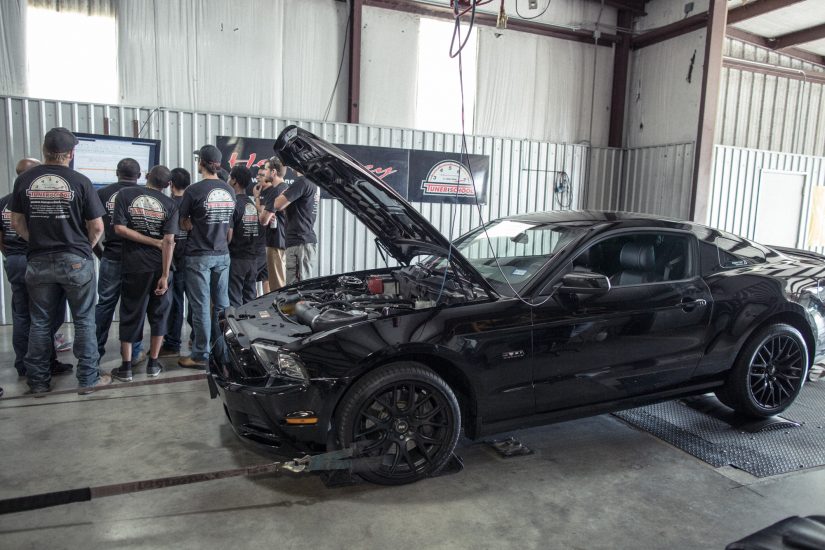

#CAR TUNING CLASSES HOW TO#
You’ll learn not only how to make the most power for a combination, but also get priceless information about “power management” techniques and strategies for modern racing styles such as “No Prep” and other popular venues.īy the time your classroom session has completed, you will be able to open up a software program from any number of aftermarket ECU’s and create your very own “base map” from scratch!
#CAR TUNING CLASSES PROFESSIONAL#
Your instructor will share insights along the way about how these topics play out in the real world, as most of them have worked in professional racing environments such as ProStock and Nascar among many other sanctioning bodies. Controls for items such as idle control valves, Boost control valves, stepper motors, coil dwell mapping, fuel injector characterization for slope and offset depending on battery voltage and fuel pressure and so much more! We will guide you through every component of evaluating engine combinations, ECU hardware and software, sensors and actuators including crank trigger offset alignment, sensor scaling and configuration, P.I.D. Our argument here is that somewhere, someone was educated enough to make the very first “base map” from nothing more than a firm understanding of the engine components and they were able to get up and running without the help of anyone else. Once the engine starts the tuner will then make “tweaks” or adjustments to the fuel, spark, idle, boost and other parameters until the engine is “tuned”. This is a file that was successfully used by someone else for another engine that is similar enough to the current one to get things up and running. This Program is an intensive 5-Day course that begins as a journey through complex engine topics that you wouldn’t ordinarily encounter during a discussion about tuning engines.Įvery class begins with an explanation of the 4-stroke Otto Cycle engine by looking at in-cylinder pressure traces that relate the volume and pressures together as part of a “PV Graph” and helps connect important concepts in engine theory such as why the Rod/Stroke ratio, Camshaft selection, and Cylinder head flow rates and Compression Ratios affect the Volumetric Efficiency of an engine, and how a tuner can approach building a calibration for the engine from scratch.įrom the beginning, our approach to tuning is different because for most “tuners” the idea of calibrating an ECU starts with a “Base Map”. We open doors to ideas and concepts that can only be seen and experienced here at our campus, where much time and effort has been expended to create a unique learning opportunity based on years of competitive engine development and tuning for race teams in the real world.

This may be a dramatic explanation, but it gets the point across that if you really, truly want to learn about engine science when it comes to EFI tuning then you really do need to EXPERIENCE IT! So, what did you do? That’s right… we all had to experience for ourselves why we shouldn’t touch the stove! However, you didn’t need to touch it again because your new experience provided a profound learning opportunity to change the way you behave! Think about it…when you were young, someone may have said “don’t touch that stove, because it’s hot”. Here at EFI University we understand that “Learning” is defined as: “a change in behavior, based on experience”. Everything about the environment is subtly focused on providing a truly immersive motorsports experince. Welcome to the “Super Bowl” of EFI Training programs! This course is by far our best value and our most intense study in engine tuning.įrom the moment you walk in the door, you will know there is something different about EFI University.


 0 kommentar(er)
0 kommentar(er)
